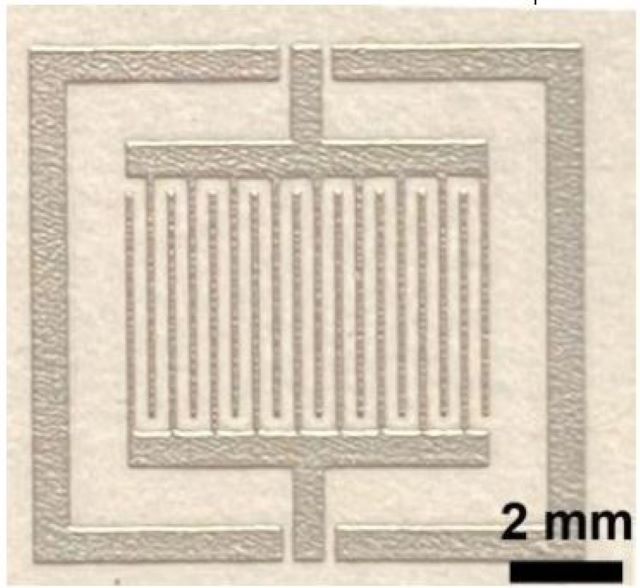A method for manufacturing biodegradable nano-cellulose infiltrated paper (NCIP) substrates with low surface smoothness and low porosity for printed electronics and packaging applications.
Problem:
Electronics and sensors today are typically fabricated on non-biodegradable substrates, which means they are poorly suited for a range of important uses including agricultural monitoring and integration with packaging. Currently, printed electronics manufactured on polymer substrates or paper with polymer coatings such as polyimide, are non-biodegradable.
Solution:
The inventors have developed biodegradable NCIP substrates with exceptional properties, including a smooth and non-porous surface. Both the substrate and the fabrication process are ideal for use in the large-scale manufacturing of printed electronics and sensors with high uniformity. The combination of nanocellulose with a conventional paper substrate.
Technology:
Printed electronics are a class of low-cost device made by printing conductors and dielectrics on substrates. The inventors have developed a multi-step process of coating and drying aqueous CNF solution onto paper substrates. The controlled process allows for the fabrication of large area NCIP substrate with minimal distortions. The substrates can be engineered to be moisture responsive, allowing them to be used as a transducer material for humidity and soil moisture sensors. Biodegradable sensors have a wide array of applications in medicine, agricultural monitoring, and packaging.
Advantages:
- NCIP substrates are biodegradable and sustainable, unlike other substrates currently in use.
- The fabrication method for NCIP substrates is low-cost and scalable for large areas and high-volume manufacturing.
- NCIP substrates have high smoothness, translating to less variability in printed feature thickness and in-plane dimensions.

An example of a moisture-responsive screen-printed capacitor on an NCIP substrate.
Case ID:
23-10395-tpNCS
Web Published:
9/20/2023
Patent Information:
| App Type |
Country |
Serial No. |
Patent No. |
File Date |
Issued Date |
Expire Date |